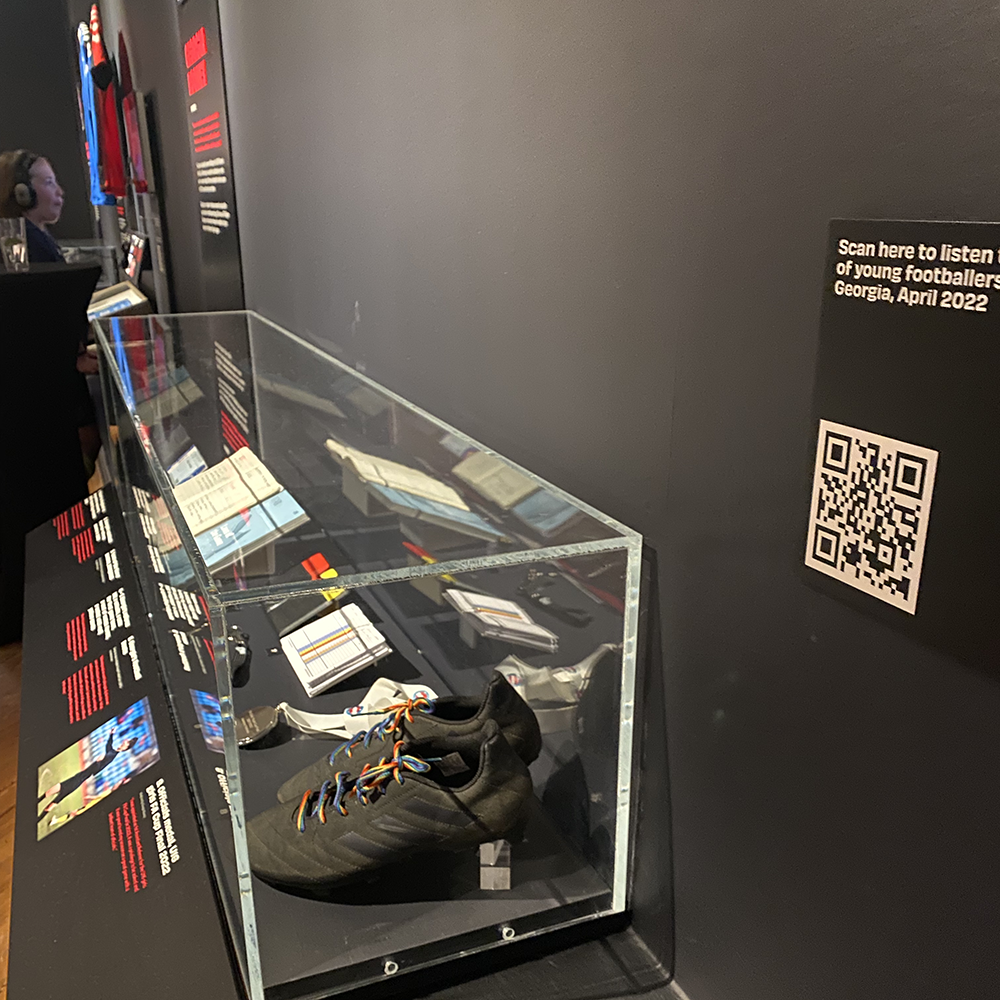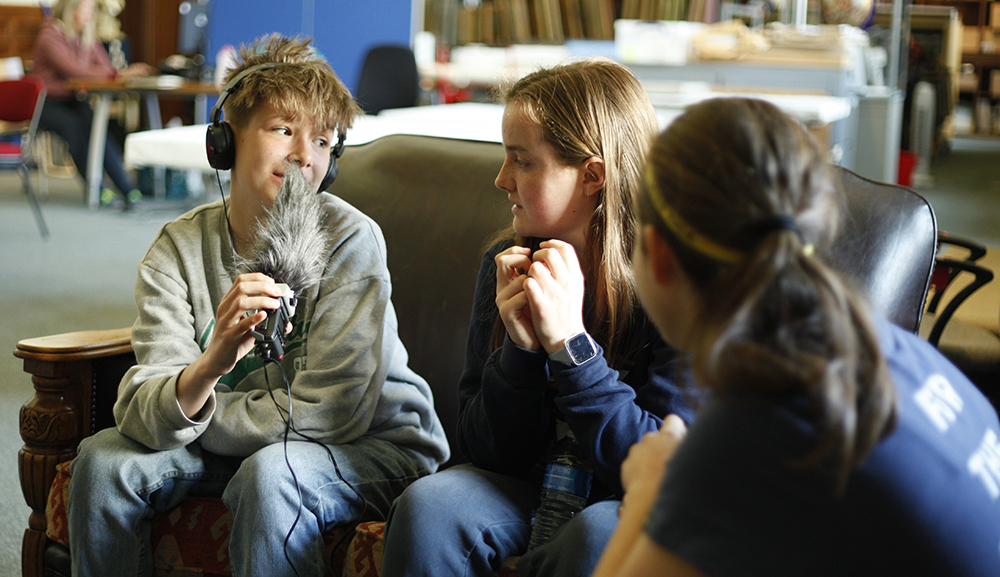I’ve followed women’s football for the past decade. Ten years ago, if I couldn’t make it to a match in the top flight of women’s football, I’d have to resort to following the action on Twitter, looking for anyone who was tweeting ball-by-ball coverage (hello Girls on the Ball, @Stillberto!). There was no TV coverage, no FA Player streaming matches. There was little to no coverage in the national press, and scant information about players, managers, tactics, strategies – all the things that make following the game interesting and exciting. But times are changing.
It really feels as if we have reached a tipping point. After a 50-year ban by the FA between 1921 and 1971 (their view was that football was “quite unsuitable for females”), with women resorting to forming their own leagues and tournaments, playing in boys’ teams in boy’s or men’s kits, the tide has turned.
Over 1 billion people tuned in to watch the 2019 Women’s World Cup and for the first time England’s women had their own bespoke kit. In April 2022, 91,648 fans filled Camp Nou to see Barcelona Women take on VfL Wolfsburg in the Champions League semi-final. And with the Women’s Euros about to kick off in July, we’re going to see an explosion of coverage (at last!) of the women’s game.
🎧Listen to our Goal Power podcasts 👇
This summer, get yourself down to Brighton Museum. You’ll be treated to an amazing exhibition, Goal Power! Women’s Football 1894-2022, dedicated to the unstoppable rise of women’s football over the last 100 plus years. They have a fantastic array of memorabilia, from the uncomfortable-looking boots worn by munitions worker Fanny Williams in 1921, to Brighton General Post Office team programmes, shirts and trophies from the 1960s and ‘70s, and (for the first two weeks) the 2022 Women’s Super League trophy. The exhibition runs to 25 September 2022.
You’ll also see a few QR codes that link to some fascinating interviews that Make (Good) Trouble helped to create…

In April, Make (Good) Trouble worked alongside photographic artist and artist facilitator Lindsey Smith, to help seven young players, aged between 12 and 14, interview legends of the game, and those working in and playing football today. The resulting podcast series gives us real insights into what it was like to be a player in the 1960s and ‘70s, and how that is changing for those involved in the game today.
The interviews
A fascinating conversation between young female footballers from Sussex
⚽️ Listen to the young players’ conversation (10 minutes)
Marta, Olivia, Bo, Lili, Rosa, Caitlin and Verity talk about their experiences getting into the game, their aspirations and how they deal with sexism.

Eileen Bourne started playing football in the 1960s for Brighton GPO team and was part of starting up a local league and national women’s leagues.
⚽️ Hear Bo and Rosa’s interview with Eileen Bourne (7 minutes)
“My dream was that I would be playing in a cup final at Wembley… That was a dream that was never going to come true, but now it’s different. Girls have played at Wembley.”
Petra Landers, German international player was part of the team that won the Euros in 1989. The German FA infamously presented their triumphant team with a coffee set for winning the trophy. Today Petra is a volunteer coach and mentor working with girls in Ghana.
⚽️ Hear Caitlin and Lili’s interview with Petra Landers (7 minutes)
“I’m going into the communities [in Ghana]. I will have football camps, maybe three or four days… My friend and me, we are going through the communities by motorcycle and this will be a brilliant adventure…. I try to find sponsors and even if I don’t find them I will do it. It’s my passion, my goal, my everything.”
Georgia Rooney, a professional referee and trainer. Inspired by seeing female referees at the 2019 Women’s World Cup, she Googled “how to become a referee”. Her ambition is to referee WSL and international matches.
⚽️ Hear Marta and Olivia’s interview with Georgia Rooney (6 minutes)
“I always wonder because I was good when I was little, if there was anyone around who was focused on women and girls football and they’d have seen me play and thought she could go on a team or might have just fostered my interest a little bit and helped me go somewhere with it. I just wonder what a difference that would have made because no one paid any attention because no one thought that football was really for girls.”
Lewes FC’s Rhian Cleverly, Karen Dobres and Ellie Ramsauer
⚽️ Hear Bo, Marta, Caitlin, Rosa and Olivia’s interviews with Rhian, Ellie and Karen from Lewes FC
Rhian Cleverly, captain of Lewes FC Women and former Welsh international. She is proud to be playing for “the best team in the world”, the first, and currently only, professional or semi-professional club in the world that splits its resources equally between its men’s and women’s teams.
“It’s given me the best experiences and friendships I’ve ever had in my life. There’s been tough times, but I think it’s also prepared me, like being released [from a contract] in France – I lost my home, I had a boyfriend at the time, so we broke up, I had lost my car, lost my job, and I was like, oh, what do I do now? So now I think little things like being injured and having surgery, it’s not as big a deal… it’s prepared me for other things in normal life. So, yeah, I would say if you enjoy it and it makes your heart pump and it makes you smile, then definitely go for it because you won’t regret it.”
Ellie Ramsauer, coach for the under 14s development pathway at Lewes FC (since May 2022, Manager of Saltdean Women’s Development Side), has played football since she was 6. She works in the evenings and at weekends alongside a full-time job.
“I think boys are more pushed and girls are more excluded. I mean, if you really want to, you can get into it, but there’s not the same encouragement as there is for boys… I think when I was younger, there weren’t many girls teams, not many girls in boys teams either. When I went to watch Arsenal women, they all had men’s hand-me-down kits. I don’t think they were paid either. They never played in big stadiums. Yes, I think respect for the game has grown exponentially.”
Karen Dobres, elected co-director at Lewes FC, the first (and currently only) football team to share its resources equally between its men’s and women’s teams. She is involved with fan and community engagement and financial sustainability. She is passionate about raising the profile of the club and promoting its ethos and practice of equality.
“I think we’re a long way off equality, but I think that’s simply down to decisions in board rooms. So it’s not like there’s a lot to overcome, really, because we [at Lewes FC] had a lot to overcome when we introduced equality, but everyone seems to have come round to it. Now the sponsors are on board, right? And our men’s team have definitely not suffered. They’ve also been promoted. It’s an important thing to say.”
👏 Take a look at Lewes FC and see the brilliant work they’re doing to promote equality.
♥️ This project was made possible with the support of the Lottery Heritage Fund.
